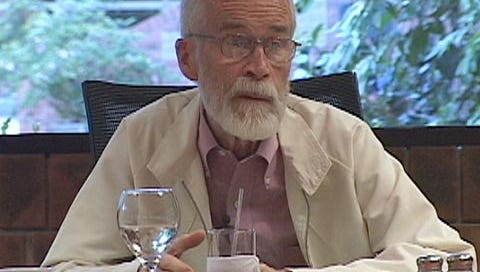The Art of the Proprietary Community
Behind The Emerging Society of Spencer MacCallum and Popdaddy
Without taxation and the state's monopoly provision of public goods, it may be difficult to envision how a residential community might develop. After all, who wants to live without electricity, roads, gas, and anything else the grid has provided for?
It’s a reasonable question, despite the classic ridicule behind “who will build the roads?”
Thanks to the work of Spencer Heath MacCallum, we can provide a coherent answer for the provision of such things.
Before doing so, it’s worth getting into the backstory that led to this grossly overlooked intellectual achievement. MacCallum’s own account cannot be told without the mention of Spencer Heath, his grandfather.
Spencer Heath, the “Popdaddy”
On a visit, he found his daughter, my mother, in tears because my father thought they couldn't afford a second child (my brother had been born two years earlier). My grandfather left the room. He returned moments later with a check for a thousand dollars, a princely sum of money in those years, and asked, "Will this help?" So, being bought and paid for, I was named after him: "Spencer Heath MacCallum." Years later, when I became the only member of the family interested in working with him to publish his major work, CITADEL, MARKET AND ALTAR, and in preserving and carrying forward his ideas in other ways, he said it was the best investment he had ever made.
Heath had taught at the Henry George School in New York City For several years, until being terminated by Frank Chodorov, its new director, for insufficiently adhering to the Georgist school of thought. Heath’s ideological split with the Georgist orthodoxy eventually led him to view land as the cornerstone to societal liberation from state power.
"I was astonished to hear such extreme ideas from a person seemingly level-headed, who had been preeminently successful in not one but three careers in engineering, law and business,” MacCallum recalled. Heath “was largely responsible for my being a voluntaryist. He taught me most of what I know about thinking, and my own thinking is largely an outgrowth from his.”
This foundation was crucial for MacCallum’s own book, The Art of Community, which expounds upon proprietary community administration found in contemporary society – hotels, shopping malls, trailer parks, industrial estates, and so forth – coupled with his expertise in anthropology.
The Art of Community would eventually serve as a cornerstone reference for Hans Hermann-Hoppe’s Democracy: The God That Failed.
For MacCallum, a community is defined as “an occupation by two or more persons of a place divided into private and common areas according to a system of relations which defines and allocates responsibility for the performance of all activities that might be required for its continuity.”
The hotel is a community organized by contract. MacCallum expands on the concept in an interview.
Look at a hotel. It has its streets and alleys, its corridors... the lobby is there, the city square, and perhaps [a] park, we have the palms and so on in the lobby.
And you have you even you have the provision of utilities and - and you have a security office there that works very nicely. Very quietly. If you misbehave, you may find yourself very quietly [escorted] outside the hotel.
It has a transportation system, which happens to operate vertically instead of horizontally. It's in every sense, it's a community, that specialized, more rapid turnover and so on. No matter what we think of as communities, but each of these entrepreneurial communities - these types, these classes - called multi-tenant income properties, developed as a business for income rather than for capital gain by selling off the pieces.
We can see the utility in MacCallum’s observations of the hotel, and perhaps it sheds light on more fundamental possibilities. Suppose this model is considered more broadly for a residential community. Suppose, even, that this reveals the possibility of a fully self-managed residential model, without any necessity for political actors to assert their will upon it.
But what is ultimately the advantage, on economic and ethical grounds? Spencer Heath weighs this out in Citadel, Market and Altar: Emerging Society:
Unlike mere elected officials, such owner-administrators will have everything to lose by force or fraud or any inhibitions of the social process and everything to gain, in fortune and in honors, by their fruitful and efficient administration of the public affairs in the communities they own.
Spencer MacCallum passed away in December of 2020. It is my hope that this piece can help to preserve the vision he worked to articulate.
External Resources:
Looking Back and Forward by Spencer Heath MacCallum
BOOK: From Citadel, Market and Altar: Emerging Society by Spencer Heath
BOOK: The Art of Community by Spencer Heath MacCallum
The Art of Community by Joseph Gilly
Long Thin Things by Walter E. Block
VIDEO: Jim Davidson: Spencer Heath's Intellectual Contribution




